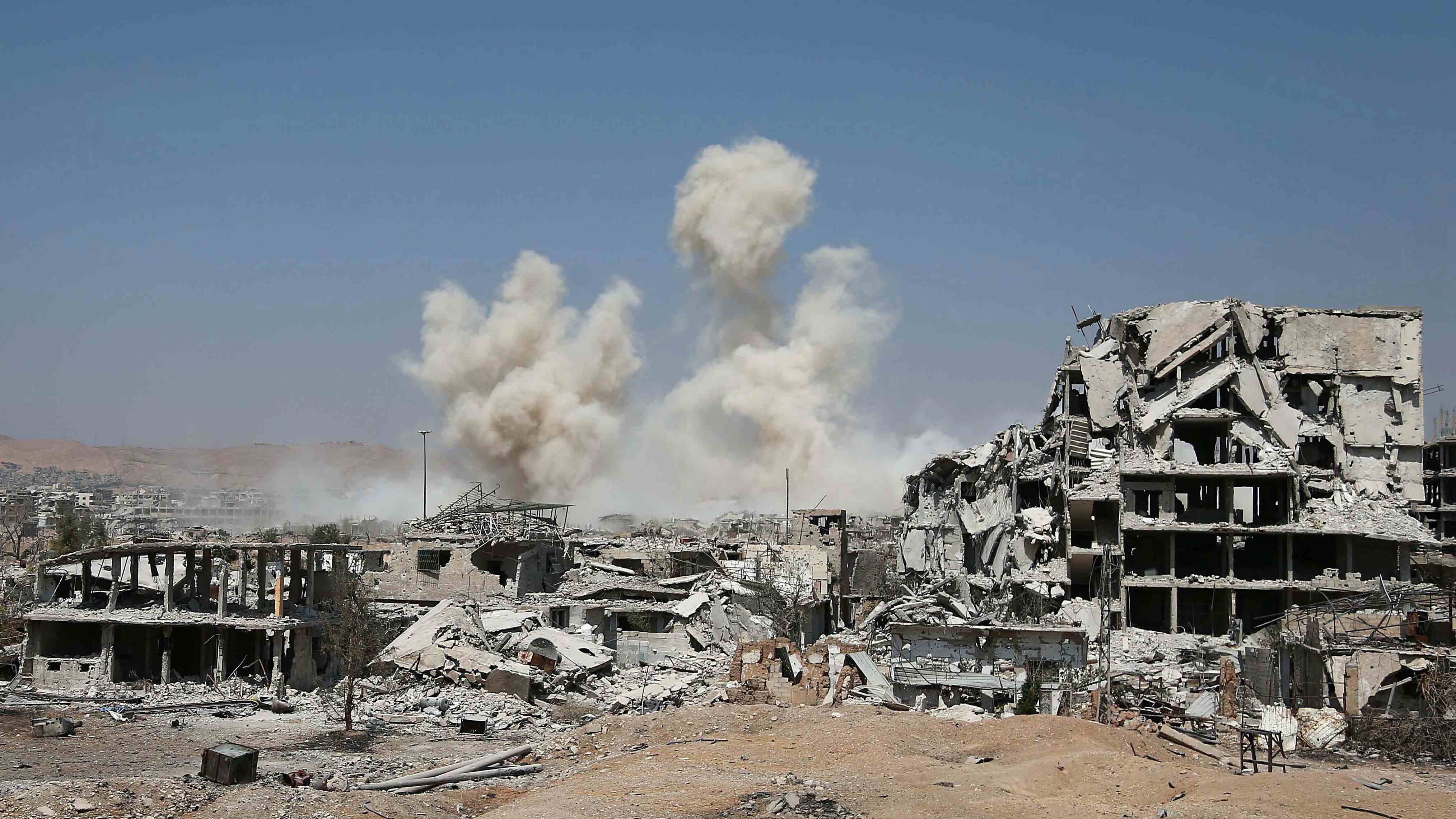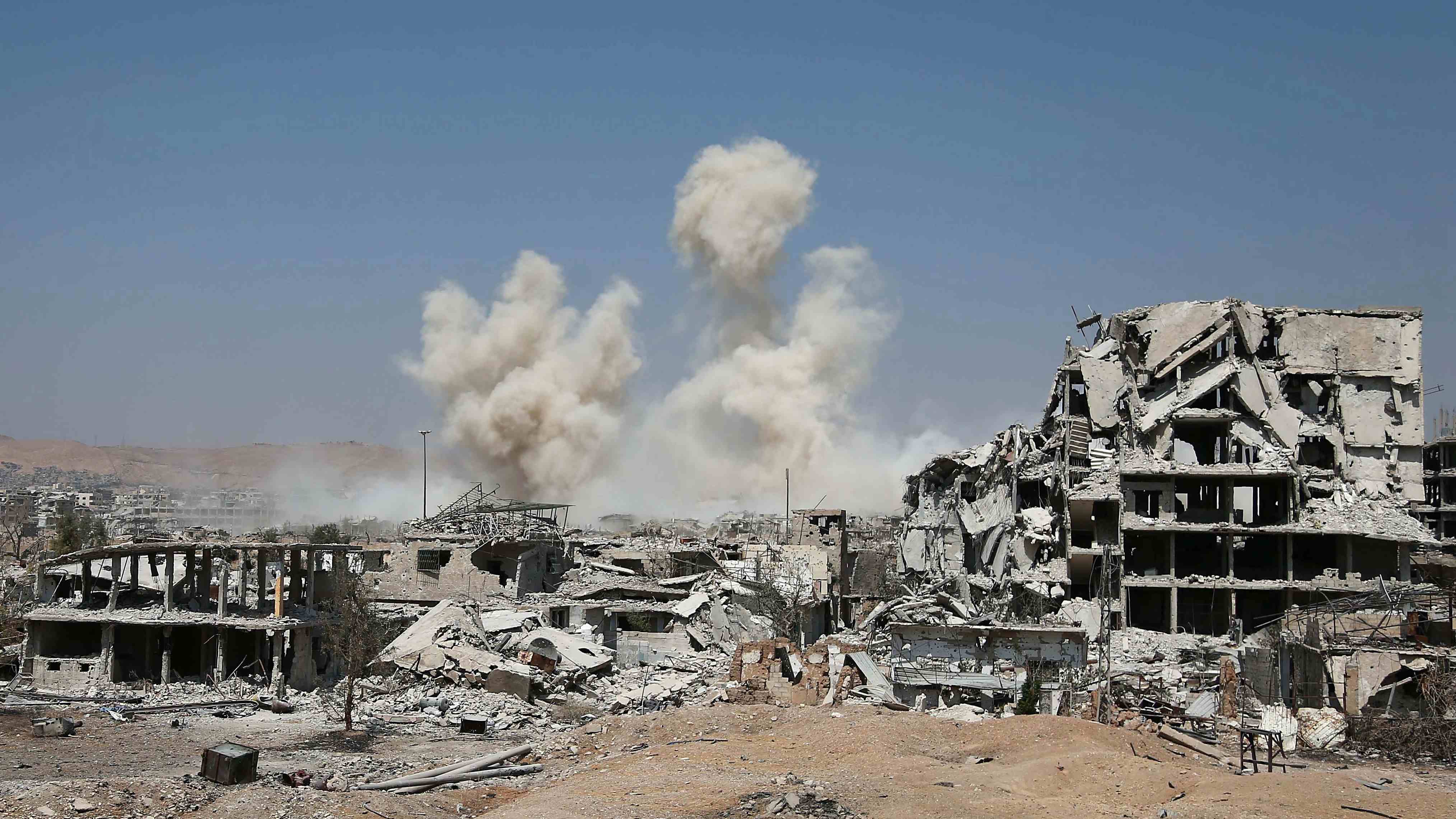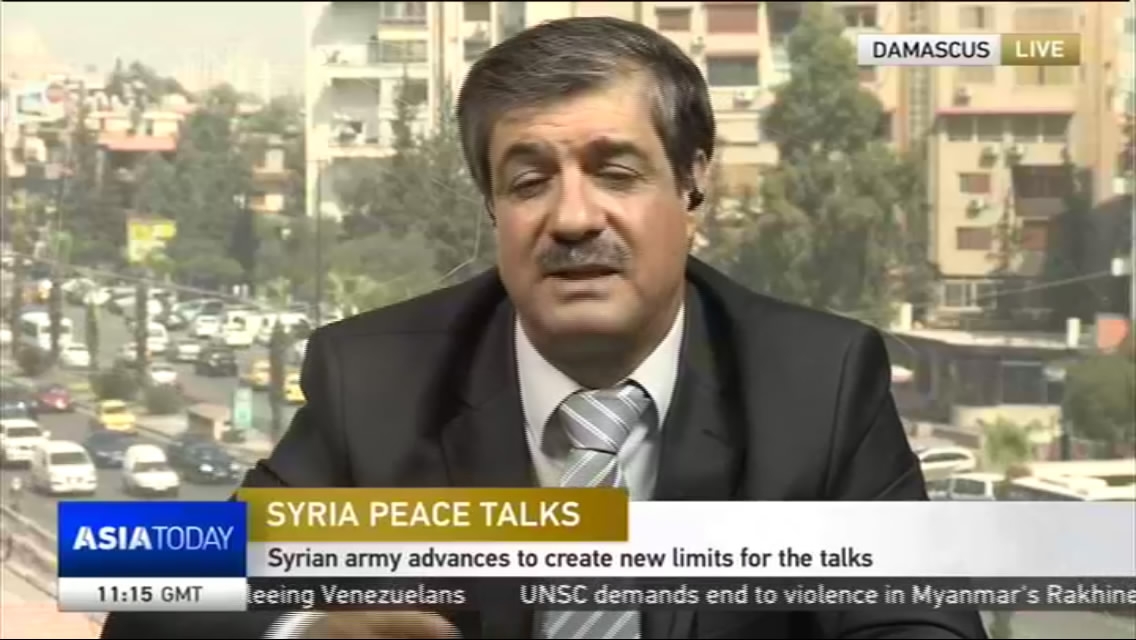
World
23:04, 14-Sep-2017
Damascus political analyst: Syria talks in Astana, Geneva complement each other
CGTN

Two days of Syria peace talks began in Astana, Kazakhstan on Thursday.
The meeting is expected to focus on implementing lasting ceasefires in de-escalation zones. So far, three of these zones have been established in Syria: in the south along the border with Jordan, in Eastern Ghouta and to the north of Homs.
Consultations on the fourth and most problematic zone in Idlib province are ongoing. Humanitarian aid, detainees and de-mining activities are also expected to be on the agenda for the meeting.

The talks aim to end the violence in Syria. /AFP Photo
The talks aim to end the violence in Syria. /AFP Photo
Key attendees of the meeting are the same as in previous talks. The Russian delegation was set to be headed by the special envoy for Syria Alexander Lavrentyev. The Iranian delegation is usually headed by Deputy Foreign Minister Hossein Ansari, while the Turkish side is led by Deputy Foreign Minister Undersecretary Sedat Onal. The Syrian government delegation is headed by Syria’s Envoy to the United Nations in New York Bashar Jaafari.
The UN Secretary General’s special envoy for Syria, Staffan de Mistura and the Jordanian Foreign Ministry’s special advisor for political issues Nawaf Uasfi Tel are also present as observers. Acting Assistant Secretary of State for Near East Affairs, David Satterfield, is representing the US.
Interestingly, the Syrian opposition delegation will this time include not only representatives of military factions, but also a political element.
The Syria peace talks in Geneva have been moderated by the Arab League, the UN special envoy on Syria, and Russia as well as Western powers since 2011. The Astana peace talks on Syria began in January, but so far have produced no real breakthroughs.

Political analyst Dr. Taleb Ibrahim
Political analyst Dr. Taleb Ibrahim
However, during an interview with CGTN’s Asia Today, Dr. Taleb Ibrahim, a political analyst from Damascus, said the Astana and Geneva peace talks are integrating with each other. He said the Astana talks’ focus on military issues such as de-escalation zones will pave the way for a political resolution, and that what is going on in Astana is complementing, not competing with the Geneva talks.
Meanwhile, Dr. Ibrahim said the thorniest problem faced by Russia, Iran and Turkey in establishing the four de-escalation zones is how to unify the Syrian opposition and how to convince other regional players to join the peace process.
He stressed that parties including Qatar and Saudi Arabia are very important players. Though Qatar has good relations with Turkey and Iran, Saudi Arabia sees Iran and Qatar as enemies, so may not want to see them so involved in Syria.
Thus, Saudi Arabia may hold back the peace process, Dr. Ibrahim warned.
The tensions between Qatar and Saudi Arabia may have a negative impact on the ground, according to the expert. They are very close to direct warfare, but if they choose to have a proxy war, it may be in Syria, he said.

SITEMAP
Copyright © 2018 CGTN. Beijing ICP prepared NO.16065310-3
Copyright © 2018 CGTN. Beijing ICP prepared NO.16065310-3